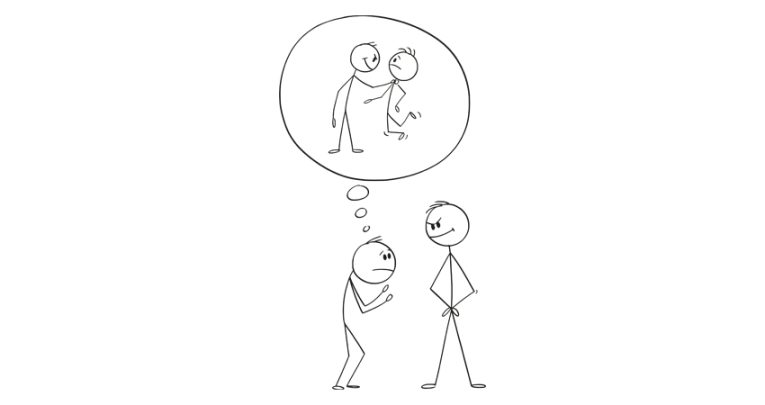Zero tolerance – Why real freedom requires order, not chaos

As any educator worth their salt knows, the one area you can never compromise on is classroom behaviour, writes John Lawson…

- by John Lawson
- Former teacher, governor, author & owner of tutoring service Visit website

There’s a sign in the reception area of my local GP, unequivocally stating that ‘Verbal and physical abuse of any kind will not be tolerated, and will be strenuously prosecuted.’ These days, you often find similar zero tolerance messages on display in shops, restaurants, pubs and offices.
You (rightly) find zero tolerance messages implied in the codes of conduct found at most schools. Yet it seems that many underperforming schools still continue ignore that wise truism, ‘Get behaviour right, and everything else falls into place’.
If we can’t discipline our Y7s now, it will be almost impossible to do so when they’re Y11s.
Many talented teachers leave the profession because their schools don’t adequately address the frequent abuse they receive. After all, for how long can we expect anyone to have their self-esteem and the worth of their subject(s) abused on a near-daily basis?
Order over chaos
For many years, I’ve advocated for ‘zero tolerance, no excuses’ behavioural policies. This is precisely because I care about young people’s future and general happiness. Discipline hurts most those whom it touches the least.
We debilitate children when we fail to adequately prepare them for an adult world that routinely demands accountability, a consistent quality of work and responsible behaviour.
Every child deserves the chance to discover and develop the gifts and talents unique to them. But that can’t happen unless purposeful order, rather than chaos, reigns supreme.
Ask most teenagers to define what ‘freedom’ means, and they’ll often parrot back some vague definition of ‘licence’. Freedom, to them, means ‘Nobody can stop me from doing what I want, innit?’ No, it isn’t.
Social freedom places humane restrictions on my own liberties, lest I take liberties with the wellbeing of others. Freedom more generally grants us the rights and incumbent responsibilities to do what decent people ought to do.
This definition of freedom and a charter of rights should be in students’ daily journals. It’s a way of ensuring that we reevaluate misunderstandings when resolving disciplinary disputes. When we stop accepting the unacceptable, redouble our efforts to safeguard our rules and insist that respect is a two-way street, it’s a win-win situation for everyone.
Behaviour over curriculum
Last year, I wrote to a local school principal whose students are responsible for regularly creating public disturbances, including numerous instances of loutish teens brandishing obscenities far too loudly and proudly.
Ofsted describes the school as a ‘good provider’ – though of what, is unclear. Since the principal didn’t respond, I’d like to share here some strategies pursued by a visionary headteacher who mentored me while transforming a massive sink school into a centre of excellence.
First, work diligently with KS3 students from day one of Y7. Document and resolve all inexcusable incidents that teachers report. Make sure to train teachers to prioritise behaviour over the curriculum. You can quickly recover lost learning time once students have learned to behave respectfully.
Then, ensure that every teacher is able to discern the key differences between discipline and punishment. I’d say that over 60% of the new teachers I mentor can’t. Why is that? A similar proportion will further admit to shouting at students when they get frustrated. That rarely helps, as once teachers start berating their students, the focus shifts to their (un)professional conduct, with the risk that miscreants will escape correction.
Reciprocated responsibilities
After-school detentions should serve as opportunities for experienced teachers to educate detainees about their behaviour and the long-term consequences of being uneducated.
We should require students (and teachers) to apologise for any wrongdoings. We should swiftly exclude abusive students from classrooms, but be slow to exclude them from school. Most schools will need inclusive spaces where you can address issues compassionately.
There are, however, some problems that lie beyond any apparent resolution. In every social group, through the generations, there’ll always be that small minority of rebels that you’ll need to identify early on.
When the LA forbids last resort exclusions, while reminding you that every child is entitled to an education, politely remind them that you can’t honour rights without reciprocated responsibilities.
Even Don Bosco, an innovative and saintly educator canonised for his devout services to education, found it impossible to educate that 5% of boys who were fiercely determined to be left behind. Memento sis homo.
John Lawson is a former secondary teacher, now serving as a foundation governor while running a tutoring service, and author of the book The Successful (Less Stressful) Student (Outskirts Press, £11.95); find out more at prep4successnow.wordpress.com or follow @johninpompano










